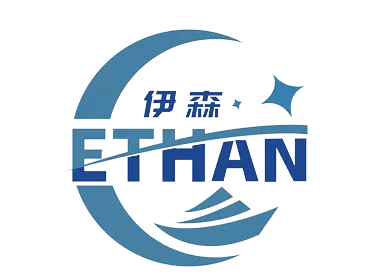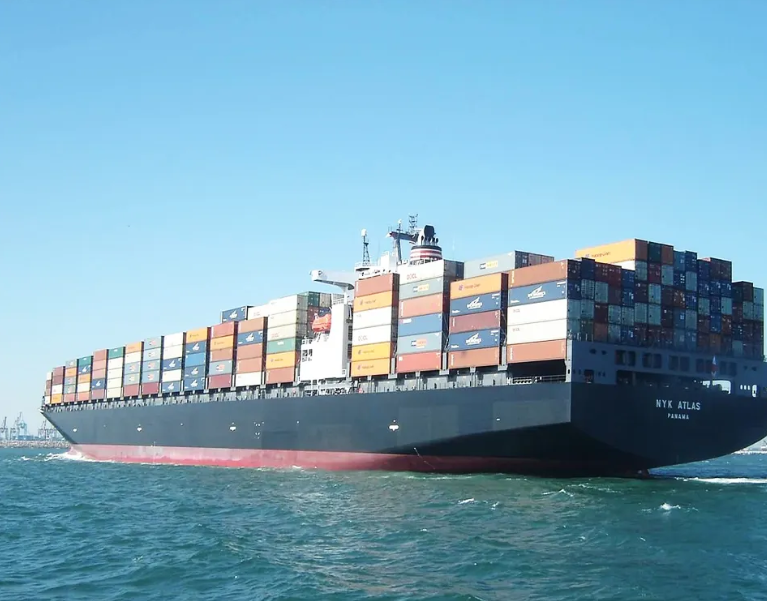Speed and Time Efficiency in Global Shipping
Express delivery options for urgent shipments
Businesses all over the world deal with mounting pressure to handle last minute orders and rush deliveries. Fast shipping options have really taken off lately, with companies now offering same day or next business day service almost everywhere. Customers want things quick these days and will take notice when companies can deliver faster than competitors. According to a report by IATA, about one third of people who ship goods regularly choose express services mainly for how fast they get stuff there. We're definitely seeing a shift towards quicker delivery times across the board. Logistics firms are getting smarter too, using complex computer systems to figure out the best routes for overnight packages, which helps them knock precious minutes off delivery windows.
Guaranteed delivery timelines across major markets
When international express services make those promises about delivery times, it gives businesses peace of mind knowing their packages will show up on time. For industries like online retail and factory production, this kind of timing matters a lot since even small delays can cost money. Some studies have found that businesses relying on these fixed delivery windows see around a 20% boost in how well they run day to day. The real value here lies in consistent shipping performance. Top express companies now go beyond just words though. Many actually offer money back if packages don't arrive when promised, which adds extra protection for companies worried about supply chain disruptions.
Reduced transit delays through optimized logistics networks
Getting logistics networks right with modern tech makes all the difference when it comes to cutting down on those frustrating transit delays. Companies now rely heavily on AI and machine learning tools to spot problems before they happen and redirect shipments accordingly, which cuts down on wait times for everyone involved. Some research shows businesses might actually knock about 20-25% off their average transit times using these smart logistics systems, giving them a real edge in how well their supply chains function day to day. And let's not forget about those regional partnerships between logistics firms either. When companies team up and share what they know plus equipment, whole operations get smoother. Think of it like neighbors helping each other out during snowstorms instead of everyone trying to clear their own driveway separately.
Enhanced Reliability and Security
Real-time tracking capabilities for shipment visibility
More and more logistics operations around the world are looking for real time tracking solutions because these systems give them clear sight of what happens during shipping. When businesses can track packages in real time, they're able to keep customers informed about where their orders are at any given moment, which generally makes everyone happier. Industry data shows something interesting too companies that have adopted this technology see about 30 percent fewer questions from customers asking where their stuff is. That speaks volumes about how useful these systems actually are. Companies are starting to integrate advanced tech like GPS定位 and RFID tags into their logistics networks. These tools help spot problems faster and give managers actual visibility into what's happening on the ground. The impact of all this tech is pretty transformative for supply chain management. Shippers can now respond quicker to delays, reroute cargo when needed, and basically run their operations smoother than ever before.
Secure handling of high-value and sensitive items
Keeping track of valuable and sensitive cargo is really important for companies that move luxury products or handle secret information. Many express delivery services have put together strong safety rules to keep these packages safe while they travel. Companies focused on moving expensive goods actually see around half fewer insurance claims for fraud compared to regular shipping firms, thanks largely to better security practices. We're seeing some cool new tech being used too, like fingerprint scanners and locks that need two different keys to open them. These kinds of improvements don't just protect what's inside those boxes, they help build confidence among clients who want assurance their stuff will arrive exactly where it needs to go without any problems along the way.
Insurance coverage for loss or damage protection
Insurance is really important for logistics services because it gives businesses peace of mind when they're shipping valuable goods around. Good insurance coverage helps protect against things getting lost or damaged while in transit, so companies don't end up with big unexpected costs. According to some numbers from the Freight Forwarding Association, about 9 out of 10 companies that ship internationally actually buy insurance, which shows just how vital this is for logistics work. We're also seeing new types of insurance coming onto the market that are designed specifically for certain industries. For example, there's insurance made for electronics and another one for pharmaceuticals. These specialized options give businesses exactly what they need for their particular situation. With all these different insurance choices available now, companies feel much more confident about running their international shipping operations without worrying too much about losing money if something goes wrong.
Global Coverage and Cross-Border Expertise
Access to 180+ International Destinations
Leading express services now connect businesses to more than 180 spots around the world, which opens up a whole new world of trading possibilities. With this kind of reach, companies can actually get products to places that were previously too far out of range, helping them grow their customer base and ultimately sell more stuff. For smaller businesses especially, these kinds of shipping options are game changers. We're talking real money here - studies show some SMEs have seen their export income jump nearly half just by using these expanded networks. The ability to ship internationally without breaking the bank is transforming how many local businesses think about growth.
Localized Knowledge for Regional Compliance
Knowing what goes on locally makes all the difference when dealing with different area rules around imports, exports, and paperwork at borders. People who know their stuff say companies that work with folks familiar with the region often save themselves a lot of headaches down the road. Some studies point to about 40% fewer problems with late shipments when using local experts. Beyond just avoiding delays, these service providers get how things work culturally too, which helps packages move faster through ports and warehouses. Customers tend to be happier overall because nothing gets stuck in bureaucratic limbo or lost in translation somewhere along the way.
Streamlined Customs Clearance Processes
What sets the best express services apart from others is their ability to streamline customs clearance, which cuts down on waiting times and keeps shipments moving smoothly between countries. Businesses that get good at handling customs stuff actually see their shipping times drop by around 30%, as shown in recent worldwide studies. Working closely with local customs officials makes all the difference when dealing with those complicated rules and paperwork. This kind of partnership helps packages clear borders faster without getting stuck in bureaucratic limbo, so goods arrive on schedule most of the time.
Specialized Handling Solutions
Temperature-controlled transport for perishables
Keeping things at just the right temperature during transport makes all the difference for perishables like fresh produce and medicines traveling around the world. Without proper cooling systems, these products can spoil or lose effectiveness before reaching stores or hospitals. The numbers tell a story too the market for cold chain logistics is expected to hit over half a trillion dollars by mid-decade. Why? Because more companies realize they simply cannot afford product losses anymore. New tech is changing the game here. Those little internet-connected sensors now stick onto shipping containers give constant updates about temperatures inside. This means warehouse managers get alerts if something goes wrong halfway across an ocean, letting them fix problems before expensive cargo turns into waste.
Custom packaging for fragile or oversized items
For fragile or oversized items, custom packaging really makes all the difference when it comes to protecting goods during shipping. Some research shows around 35 percent of transport-related damage actually stems from poor packaging choices, which explains why so many businesses now invest in packaging specifically designed for what they're sending. The latest developments in 3D modeling tech have changed things quite a bit too. Courier companies are starting to create packaging solutions that fit exactly what needs to be shipped, whether it's something delicate like glassware or something big and bulky. This means packages arrive intact most of the time instead of getting damaged along the way.
Dangerous goods certification for regulated shipments
International transport of hazardous materials demands strict compliance with regulatory requirements, making dangerous goods certification absolutely essential for both safety and legal purposes. Regulatory bodies report that packages without correct documentation face around 60% greater risk of getting stuck at customs or facing costly penalties, which explains why so many shippers prioritize getting everything right before loading cargo. Logistics firms serious about safety protocols invest heavily in training staff who handle these materials daily. Well-trained personnel not only reduce accident risks but also help avoid those expensive delays and fines that can cripple business operations when things go wrong during international shipments.
Cost-Effective Solutions for Businesses
Competitive rates for bulk and repeat shipments
Businesses that ship regularly can save real money by going with bulk and repeat shipment deals. According to industry data, companies that switch to bulk shipping often see their logistics costs drop around 30% versus what they'd pay under regular rates. Makes sense really - when volume goes up, prices tend to come down. For many companies trying to keep expenses low without sacrificing shipping efficiency, this is just common business sense. And there's another angle too: when businesses sit down with logistics partners and negotiate good contracts, they usually end up with better pricing yes, but also get improved service quality most of the time. Reliable delivery schedules and satisfied customers become part of the package deal.
Reduced overhead through end-to-end logistics management
When businesses adopt an end to end logistics management system, they typically cut down on the extra costs that come from dealing with several different service providers and scattered operations across departments. According to recent industry reports, firms that switch to this kind of integrated approach usually see around a quarter drop in their day to day expenses. What makes this model work so well is how it brings all parts of the supply chain together under one roof, which means better control over stock levels and much improved demand predictions. Companies find themselves able to coordinate warehouse movements, transportation schedules, and procurement efforts in ways that actually support what the rest of the organization needs to achieve its goals. This kind of coordination frees up resources for innovation and expansion projects that matter most to long term success.
Flexible service tiers balancing speed and affordability
Service level options give businesses real choice when it comes to picking shipping methods that fit what they can afford and how fast things need to get there, so companies don't have to sacrifice speed just to save money. Looking at recent industry data, we see that when companies offer different service levels, customers tend to be happier because they actually get choices that work for different situations. Logistics firms that take time to listen to what people are saying about their experiences can tweak their services accordingly. This keeps them relevant as markets change and helps them deliver real benefits to those who rely on their services. The ability to adjust and respond quickly matters a lot these days in logistics where everything seems to be changing all the time.
FAQ
What are express delivery services and how do they benefit businesses?
Express delivery services provide fast shipping options, such as same-day and next-day delivery, which help businesses meet urgent shipment needs, enhancing customer satisfaction and retention.
How does guaranteed delivery benefit companies in e-commerce and manufacturing?
Guaranteed delivery timelines provide assurance that shipments will arrive punctually, improving operational efficiency and reliability, thus minimizing potential losses due to delays.
How can real-time tracking improve customer satisfaction?
Real-time tracking offers transparency and control over shipments, allowing companies to provide ongoing updates to customers about their order status, leading to decreased customer inquiries and enhanced satisfaction.
Why is insurance coverage essential for shipping valuable goods?
Insurance coverage protects against loss and damage during transit, providing businesses peace of mind and preventing unforeseen financial burdens.


